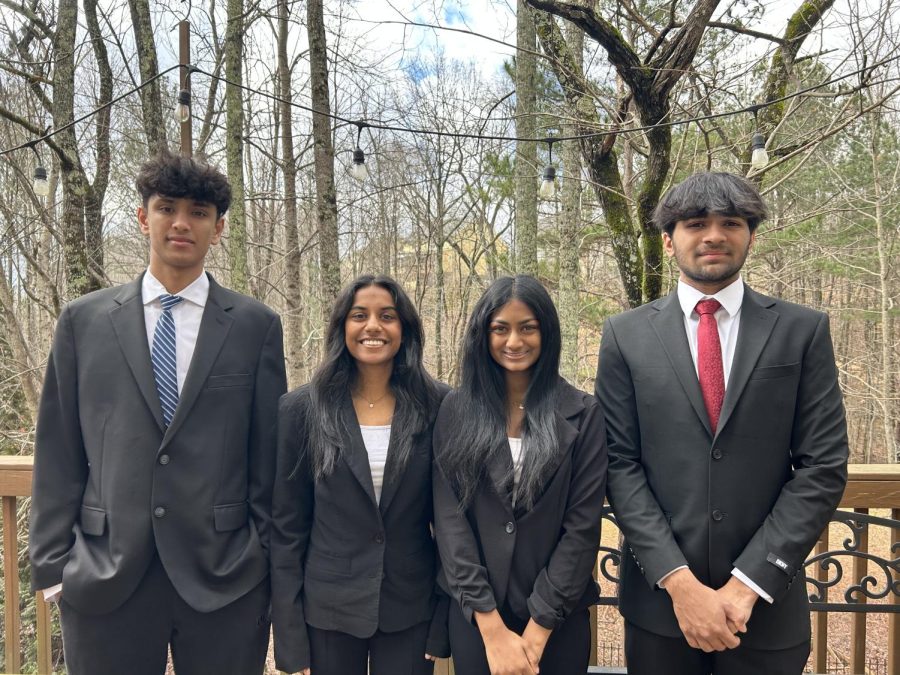HOSA MRC: South Students Help the Community Through Service Learning
The 2022 HOSA MRC group pitcured left to right (Aadi Dodda, Namita Gupta, Nikita Kopula, Aryan Kumar). Through the HOSA and MRC partnership, dedicated high school students are able to make a strong impact on the community though volunteering and service.
February 28, 2023
Every year, members of South Forsyth High School’s HOSA chapter have the opportunity to partner with the Medical Reserve Corps (MRC) to spread public-health awareness. This year, juniors Aadi Dodda, Namita Gupta, Nikita Kopula and Aryan Kumar chose to partake in this annual service project.
Namita Gupta, a member of this year’s HOSA MRC group, explains that her team “…chose this organization because we love helping others and putting a smile on their faces. We wanted to be a part of giving back to the community.”
According to their website, the MRC is a system of more than 200,000 volunteers nationwide that work to improve their communities, specifically in areas regarding health and safety. As an organization, its goal is to “provide a way to recruit, train and activate medical and public health professionals and other volunteers to respond to community health needs during disasters and other public health emergencies.”
The partnership between HOSA and the MRC “provides members with the opportunity to gain knowledge and skills required to initiate and maintain a partnership with their local/state Medical Reserve Corps units.”
Commenting on the importance of the MRC, Gupta said, “it provides an opportunity for volunteer health professionals, including students, to give back to their communities.” She added that for her, the “project has taught [me what] being part of an organization is, and it helps [me] gain hands-on experience in the healthcare field [as well as] develop skills such as leadership, teamwork, and crisis management.”
Gupta explains her favorite projects vary, from “teaching the little children about hygiene training” to “giving blankets and food to the homeless people at Woodruff Park.”
The MRC team elaborates that they “created a poster and presented it to around 25 kids and we taught them how to wash their hands properly.” They also set up stations to demonstrate and practice hand-washing, along with giving each kid a flyer to take home.
They go on to explain how the people at Woodruff Park “were so grateful” and how “it brought a ton of joy to everyone.” They also describe how “[they] got to see how some people were living” and that it prompted them to “help them be healthier and strong in their environment.”
Executing and managing each of these projects is no easy feat. The MRC team explains how when they are attempting to set up a service project, they have to “reach out ..tell them about who we are…decide on what we’re going to do… then volunteer at the site and make a difference.”
Each member of the MRC service project chooses to dedicate time and effort out of their busy schedules to help raise awareness of a cause they believe strongly in. As you walk around the halls of South Forsyth High School, you can see their hard work and effort come to fruition through posters and flyers raising awareness about things such as coping with stress, blood drives and breast cancer awareness.
Not only does the MRC program recognize these students and their devotion to serving the community, but it also provides students “with the opportunity to make a positive impact on the community and to contribute to improving public health outcomes.”





